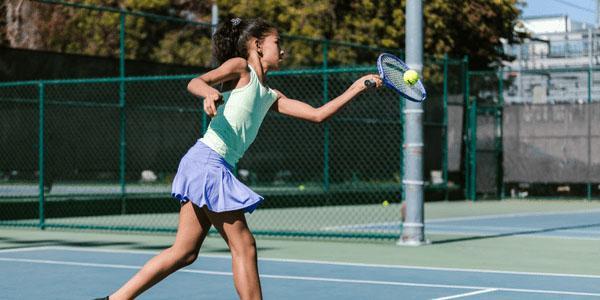How Can Your Daughter Overcome Stereotypes?
Stereotypes about girls in sports undermine girls’ confidence, dreams and performance, says Donny DeDonatis III, CEO of the United States Specialty Sports Association (USSSA), a former pro athlete and the dad of twins in youth sports.
As the head of the USSSA, DeDonatis is charged with ensuring players of all ages, races, abilities and genders have access to youth sports.
As the dad of a 7-year-old female athlete, DeDonatis, a former player for the Detroit Tigers, worries about how stereotypes affect how his daughter views youth sports.
“The stereotypes: Girls are less superior. They don’t work as hard,” he says. His 7-year-old son wants to play professional baseball, and there’s a clear path to achieve that goal. But for girls, the path isn’t as clear.
Stereotypes can put pressure on female athletes to work as hard as they possibly can. Sometimes, the stereotypes provide motivation and drive. And sometimes, they cause girls to give up.
His organization has been part of women’s professional baseball leagues, but the leagues often aren’t sustainable. The players don’t make as much money as men. They often don’t make enough money to pay their bills and build a future in sports.
“Women and girls should have the same path and opportunities,” he says.
To help combat such stereotypes, USSSA introduces the young female players to professional female baseball players. The pro athletes tell their stories and tell the girls that they’re out there fighting for young female athletes.
“It’s cool to see that engagement and hope and letting them know we are out there fighting for their cause. Only 1% will make it but the other 99 % can dream,” he says.
Introducing girls to older pro athletes helps build girls’ confidence in sports and gives them hope that they, too, can play at high levels.
To address stereotypes about girls in sports, parents need to provide as much support as possible.
Girls are more likely to play and stay in the game if they have the support of their parents or community. “But if the support is not there or not done right, girls may get discouraged and get off the path,” says DeDonatis.
Support means giving girls the opportunity to engage with high-level female athletes. It means ensuring young female athletes have the opportunity to spend time with girls who have similar interests and goals about sports. And it means ensuring that girls have access to sports–in spite of a family’s financial condition.
We’d like to add that parents of girls (and boys) should be as positive as possible, help their kids get to practices and games, avoid focusing on the score and win, and work to ensure the kids have fun.
To help provide financial support, DeDonatis’ organization is set up in a way that allows its programs across the country flexibility in how to charge for participating in youth sports. That may mean giving scholarships or allowing lower income families to pay less to play.
“Our successful programs are generating revenue. We give back to causes or have events in the community,” he says.
Related Articles on Kids’ Mental Game:
- Why Girls Drop out of Sports at Higher Rates than Boys
- Helping Sports Girls Not Worry About Looks
- Help Girls Feel Confident In Spite of Bullies
*Subscribe to The Sports Psychology Podcast on iTunes
*Subscribe to The Sports Psychology Podcast on Spotify
Improve Your Mental Game From Anywhere In The World

We’re certain that, as a parent, you want to help your child develop confidence and discipline in sports and life. And as a sports parent, you’d love for your children to reach their potential in sports. But encouraging your child to strive for greatness without pressuring them can be a challenge.
You can get expert mental coaching with us from anywhere. Meet with us via Zoom, Skype, FaceTime or phone call. With today’s video technology, we are able to connect with athletes and coaches all over the globe.
Call Us Today to Schedule Your Free 15-Minute Session.
Find Out How Your Athlete Can Benefit From One-on-One Mental Coaching!

